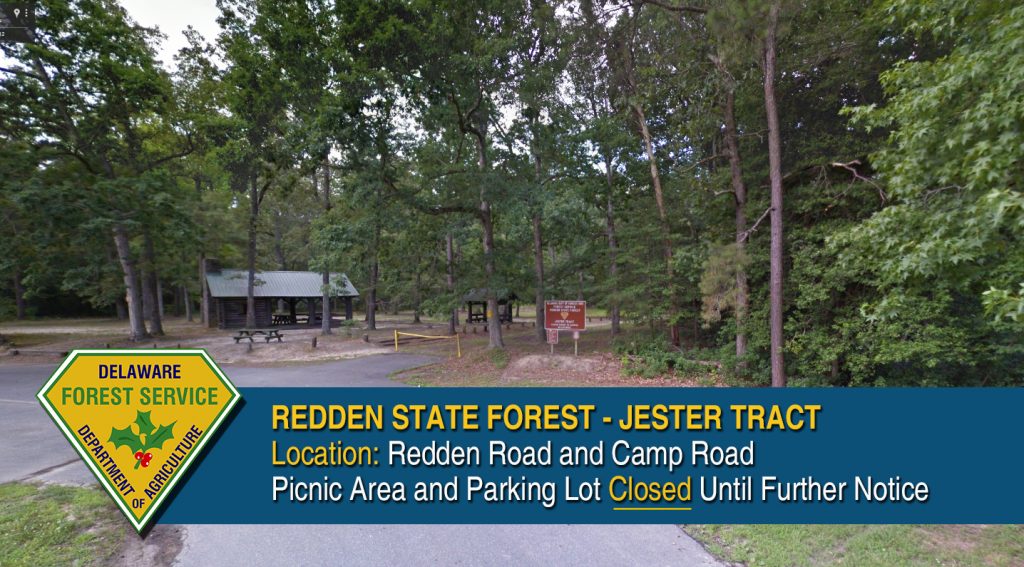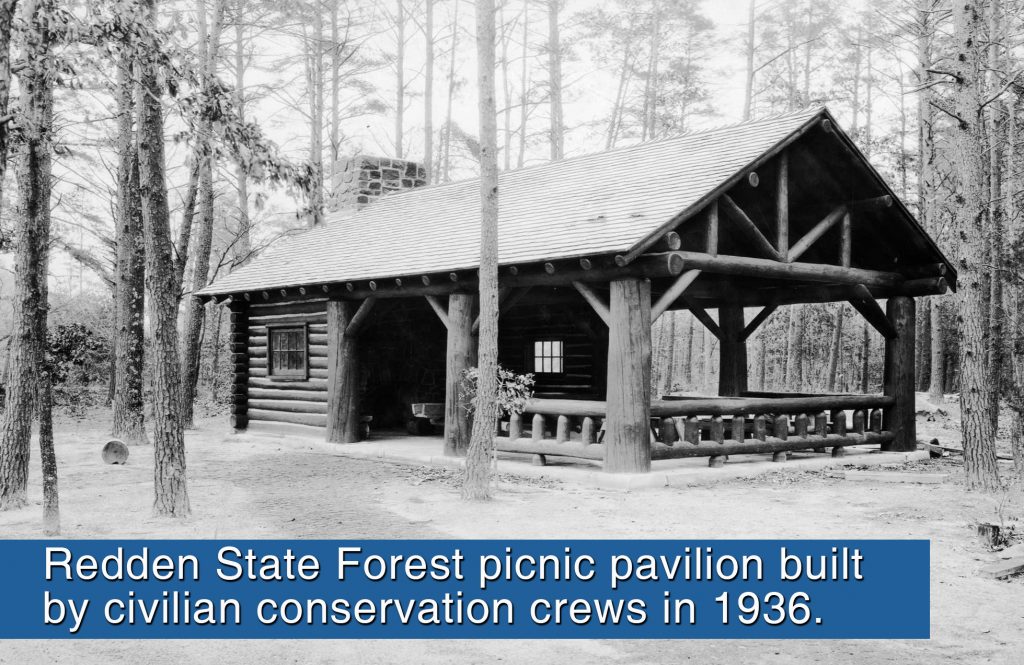
GEORGETOWN, Del. – The Delaware Forest Service is closing a picnic pavilion and adjacent parking lot at Redden State Forest due to persistent criminal activity at the site, located on the Jester Tract at Camp Road and Redden Road north of Georgetown, Sussex County.
Designed by Delaware’s first state forester William S. Taber and constructed by conservation work crews in 1936, the rustic and historic pavilion has now become a magnet for lewd conduct, drugs, and other offenses that have occasionally startled and kept away other visitors. While agency officials have no specific timetable for reopening, they plan to use the closure period for renovations and security upgrades that could again allow for public access at the site.


“We sincerely regret having to close this area to the public. However, we do not believe we can keep the facility open in light of the ongoing illegal activity and resulting concerns about public safety,” said Kyle Hoyd, Delaware’s assistant state forester. “The pavilion and parking lot will now be off-limits indefinitely. Anyone found on the premises will be subject to criminal prosecution for trespassing, in addition to other offenses. We plan to reassess the situation in the future while using this time to make improvements to this historic facility so it might eventually be reopened.”
Problems with illegal activity in the area have been building for several years – part of a troublesome trend that poses law enforcement challenges, similar to activities that have occurred at the Wolfe Neck parking lot near the Junction and Breakwater Trail in Rehoboth Beach and lewd conduct at the C&D Canal Wildlife Area in New Castle County. However, despite increased enforcement efforts, the ongoing pattern of activity at Redden State Forest has prompted officials to finally close the area to the public.
Covering more than 12,400 acres, Redden State Forest is the largest of Delaware’s three state forests and remains a popular location for horseback riding, outdoor activities, and hunting – regularly ranking as one of the top deer harvest sites in the entire First State. Redden’s Headquarters Tract also features three structures listed on the National Register of Historic Places: the Horse Barn, Ranger’s House, and Redden Forest Lodge, which date from the turn of the 20th Century.
Contact: Kyle Hoyd, Delaware Forest Service
(302) 698-4548 kyle.hoyd@delaware.gov
###